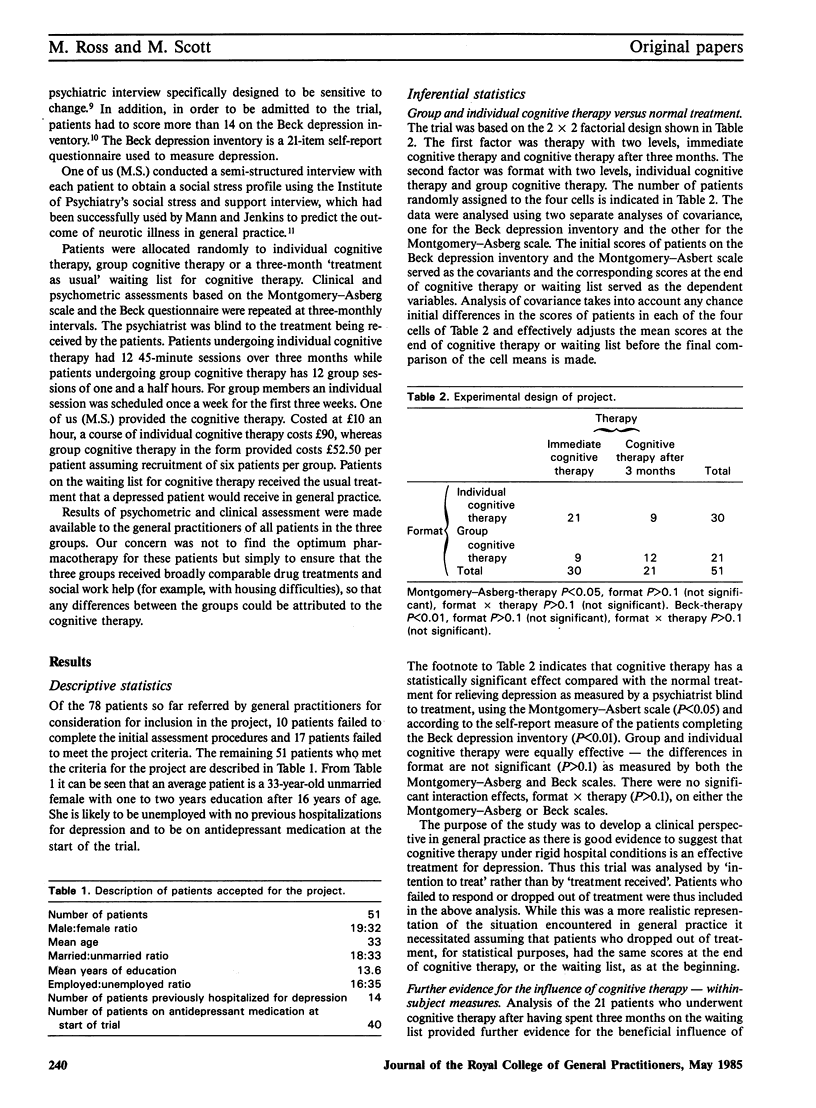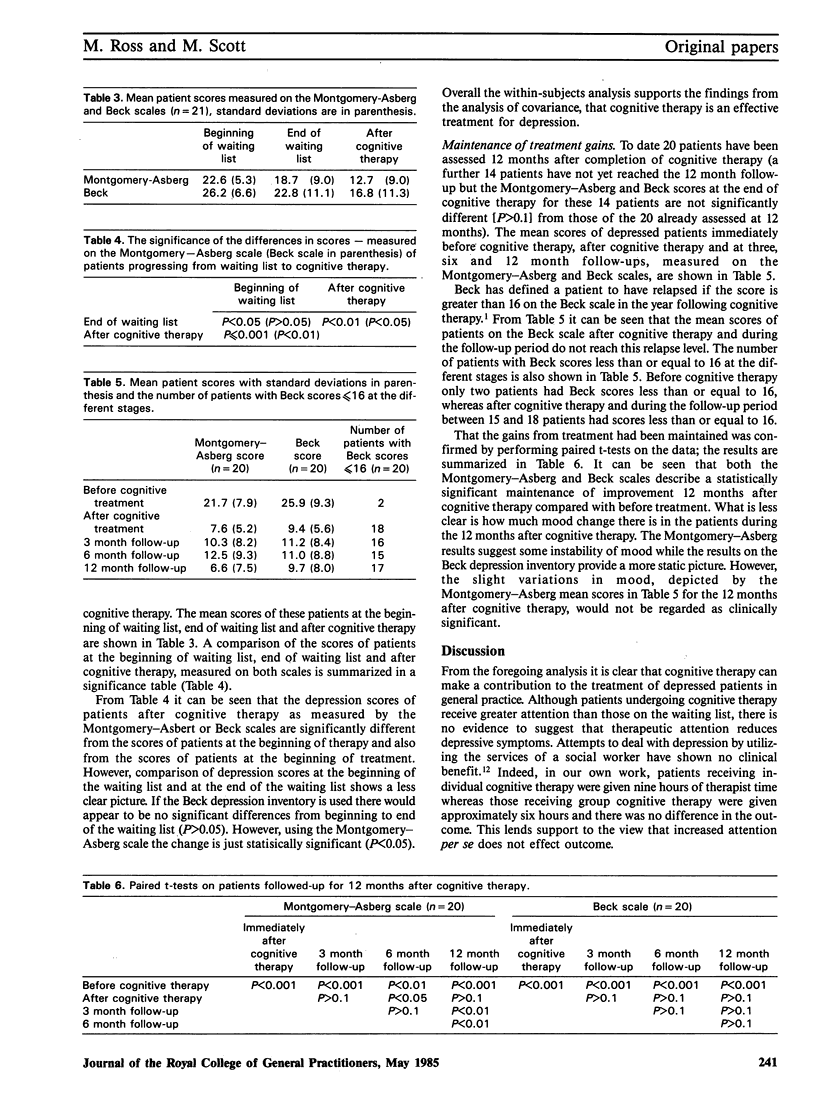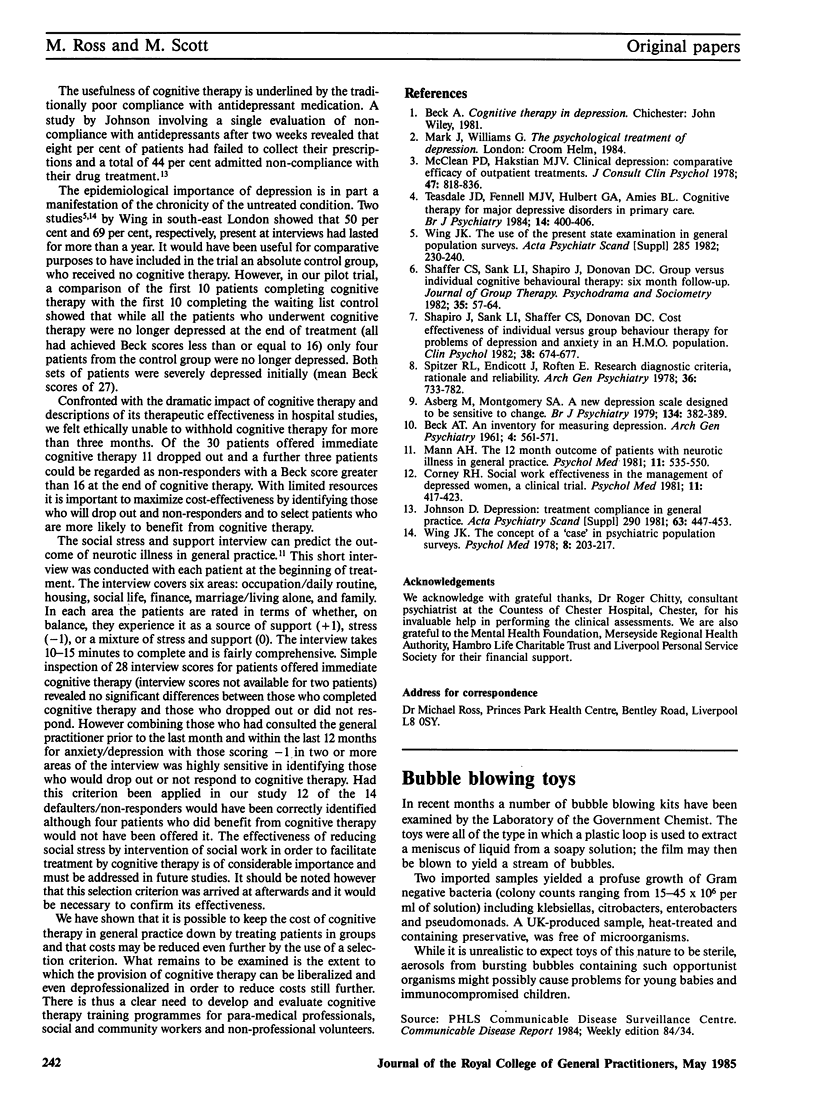Abstract
Depressed patients were allocated randomly to individual cognitive therapy, group cognitive therapy or a waiting list `treatment as usual' control group. Blind clinical and psychometric assessment of patients revealed that those who underwent cognitive therapy did significantly better than those on the waiting list. There was no significant difference between patients treated with group or individual cognitive therapy. Threatment gains were maintained at follow-up at 12 months. Prognostic characteristics for the selection of depressed patients for cognitive therapy on the basis of the chronicity and social stresses are identified. It is concluded that cognitive therapy is an effective treatment which can be applied cost-effectively in general practice.
Full text
PDF



Selected References
These references are in PubMed. This may not be the complete list of references from this article.
- BECK A. T., WARD C. H., MENDELSON M., MOCK J., ERBAUGH J. An inventory for measuring depression. Arch Gen Psychiatry. 1961 Jun;4:561–571. doi: 10.1001/archpsyc.1961.01710120031004. [DOI] [PubMed] [Google Scholar]
- Corney R. H. Social work effectiveness in the management of depressed women: a clinical trial. Psychol Med. 1981 May;11(2):417–423. doi: 10.1017/s0033291700052247. [DOI] [PubMed] [Google Scholar]
- Johnson D. A. Depression: treatment compliance in general practice. Acta Psychiatr Scand Suppl. 1981;290:447–453. doi: 10.1111/j.1600-0447.1981.tb00751.x. [DOI] [PubMed] [Google Scholar]
- Mann A. H., Jenkins R., Belsey E. The twelve-month outcome of patients with neurotic illness in general practice. Psychol Med. 1981 Aug;11(3):535–550. doi: 10.1017/s0033291700052855. [DOI] [PubMed] [Google Scholar]
- McLean P. D., Hakstian A. R. Clinical depression: comparative efficacy of outpatient treatments. J Consult Clin Psychol. 1979 Oct;47(5):818–836. doi: 10.1037//0022-006x.47.5.818. [DOI] [PubMed] [Google Scholar]
- Montgomery S. A., Asberg M. A new depression scale designed to be sensitive to change. Br J Psychiatry. 1979 Apr;134:382–389. doi: 10.1192/bjp.134.4.382. [DOI] [PubMed] [Google Scholar]
- Shapiro J., Sank L. I., Shaffer C. S., Donovan D. C. Cost effectiveness of individual vs. group cognitive behavior therapy for problems of depression and anxiety in an HMO population. J Clin Psychol. 1982 Jul;38(3):674–677. doi: 10.1002/1097-4679(198207)38:3<674::aid-jclp2270380340>3.0.co;2-f. [DOI] [PubMed] [Google Scholar]
- Spitzer R. L., Endicott J., Robins E. Research diagnostic criteria: rationale and reliability. Arch Gen Psychiatry. 1978 Jun;35(6):773–782. doi: 10.1001/archpsyc.1978.01770300115013. [DOI] [PubMed] [Google Scholar]
- Teasdale J. D., Fennell M. J., Hibbert G. A., Amies P. L. Cognitive therapy for major depressive disorder in primary care. Br J Psychiatry. 1984 Apr;144:400–406. doi: 10.1192/bjp.144.4.400. [DOI] [PubMed] [Google Scholar]
- Wing J. K., Mann S. A., Leff J. P., Nixon J. M. The concept of a 'case' in psychiatric population surveys. Psychol Med. 1978 May;8(2):203–217. doi: 10.1017/s0033291700014264. [DOI] [PubMed] [Google Scholar]



